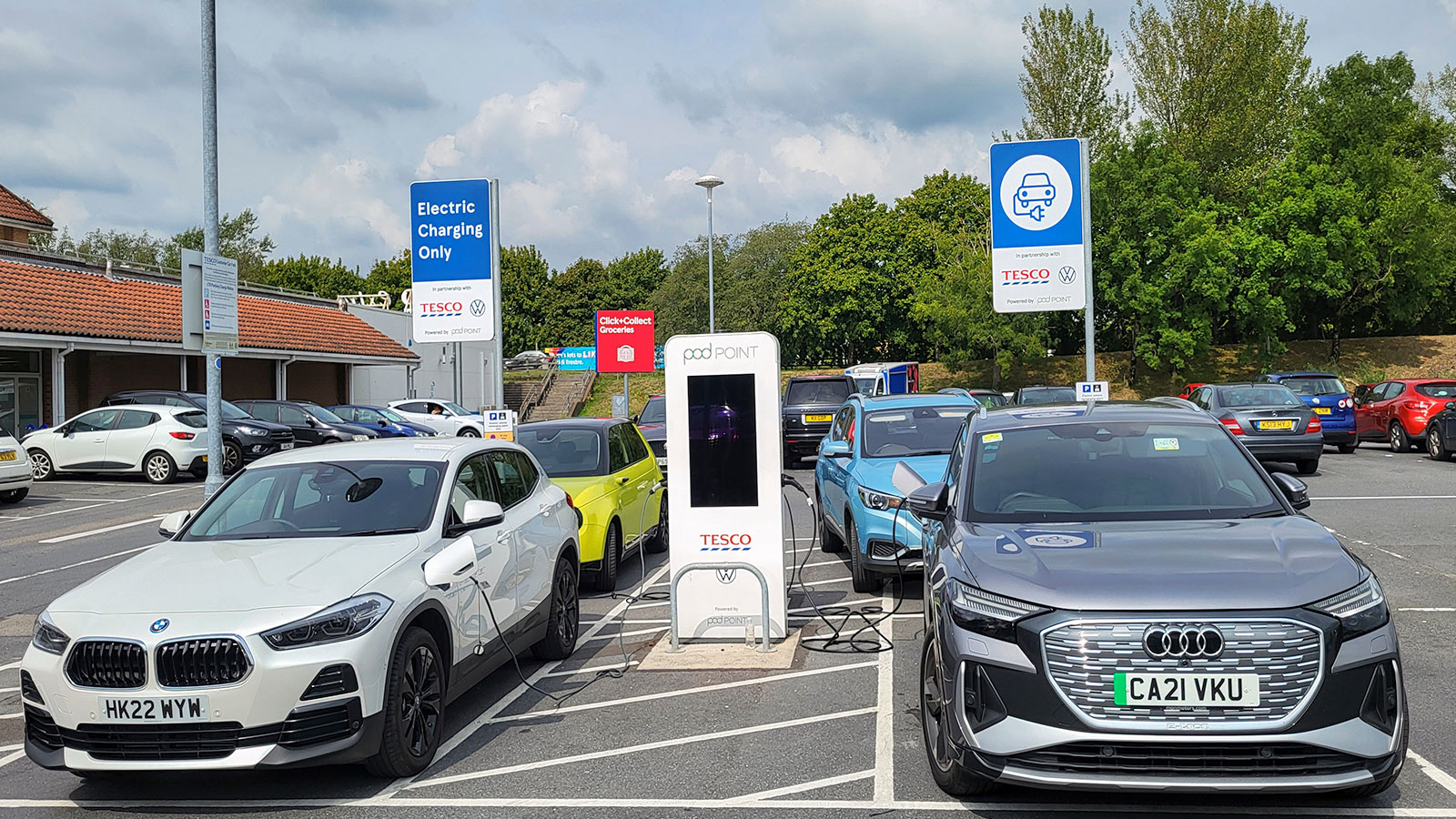Ali Khan, Head of EVC UK Sales and Business Development at Vestel e-Mobility, argues that the Government’s missed target on the roll-out of motorway fast chargers is not as crucial as changing consumer and commercial transport mindset to destination charging.
Government targets for the number of rapid chargers at motorway services by the end of 2023 have been missed, according to data analysed by the RAC. The organisation said data showed that only four in 10 motorway service stations had the minimum of six rapid or ultra-rapid chargers installed by the end of 2023. Yet is this a significant setback for the electrification of the UK transport network?
Motorway rapid chargers are only a tiny part of what will become the UK’s EV charging infrastructure. Due to the time it takes to charge a car or commercial vehicle, the transport industry and consumers must dramatically rethink how they refuel their vehicles. Dropping the kids off and then sitting at a charger in a local service station for at least half an hour with a growing queue of cars behind you will never work for consumers. Having drivers of commercial vehicles sitting around doing nothing for several hours a day while their truck recharges is not financially viable for business.
Destination charging, where EV users will charge using more traditional chargers at home, at work, at the supermarket, at the cinema, and at their customers’ premises (automatically billed back to the transport business), is the future of EV transport. Very few of the 33 million car users in the UK will pass a motorway service station regularly enough to make the most of an ultra-fast charger, and given the very high price of petrol and diesel (and charging) at motorway services, most consumers avoid ‘filling up’ at these trunk route destinations anyway.
The missed target news does not indicate slow EV adoption in the UK but demonstrates how urgently we need to adapt to a new way of fuelling our transport into the future. For the electrical industry, installing the sheer number of destination chargers required to power an EV-centric UK offers one of the most significant business opportunities of our time.
Why shift to destination charging
The traditional model of refuelling vehicles at ‘petrol stations’ is deeply ingrained in the collective consciousness of drivers. Yet the future of EV charging lies not in replicating the petrol station experience but in integrating charging into the daily lives of consumers and commercial users, where charging activity aligns with the traditional downtime of the vehicle.
For many drivers, overnight charging at home can cover daily commuting needs, while workplace and public destination chargers address the needs of those without access to home charging and provide additional flexibility. This shift alleviates range anxiety and distributes the demand for electricity more evenly, reducing the strain on the grid during peak times.
Moreover, focusing on destination charging rather than an over-reliance on motorway fast chargers encourages a more sustainable and efficient use of resources. Installing high-speed chargers is expensive and resource-intensive, requiring significant upgrades to electrical infrastructure. In contrast, destination charging stations, particularly at workplaces and commercial venues, can often be integrated into existing electrical systems with fewer upgrades. The concept reduces congestion at public charge points as spreading out charging locations minimises the likelihood of bottlenecks at motorway service stations.
It also provides a more cost-efficient refuelling experience for EV users. Charging overnight at home (typically 19p/kWh), during the day at work (typically 29p/kWh) or even subsidised as an employee benefit is a considerable saving over the typical 75p/kWh of an ultra-fast charger. Not only does this lower users’ cost-per-mile, but it also allows for more efficient use of renewable energy sources and better electrical grid management.
Business opportunities in destination charging
The pivot towards destination charging opens vast opportunities for electrical installers, contractors, and wholesalers. As homes, businesses, residential complexes, and public venues seek to attract, accommodate, and retain EV drivers, the demand for charging infrastructure will skyrocket. This demand isn’t limited to the chargers and installation but also extends to ongoing service and maintenance contracts.
For electrical professionals, this represents a significant expansion of their market. Offering EV charging solutions, from sales and installation to ongoing service and maintenance, can become a substantial part of their business portfolio. Additionally, as more companies aim to demonstrate their commitment to sustainability, providing EV charging facilities for employees and customers becomes a competitive advantage, further driving demand.
While the missed targets for fast charger installations at motorway services might seem like a setback, it simply underscores the need for a strategic rethink in approaching EV charging infrastructure. By embracing destination charging, the UK can foster a more sustainable, efficient, and user-friendly EV ecosystem and open a wealth of opportunities for the electrical industry.

